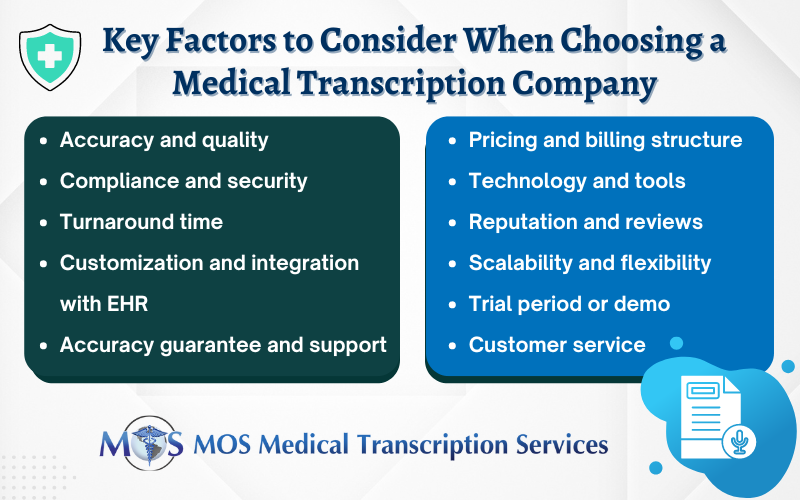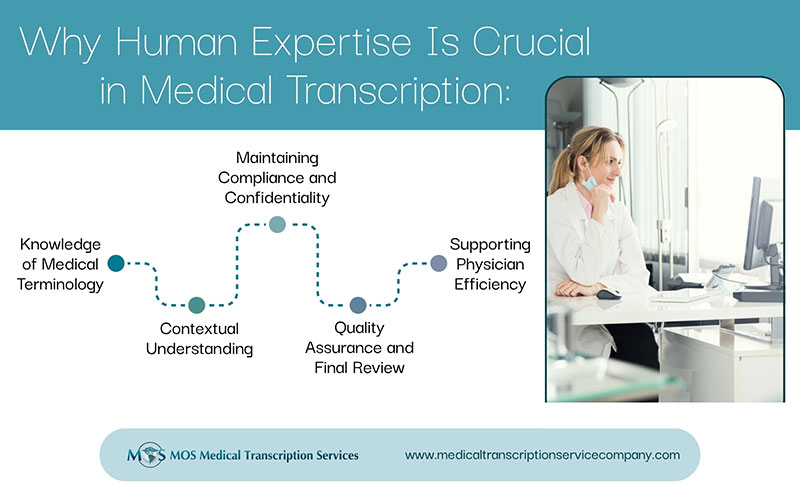
One important pillar that underpins patient care in ways that may not be that evident is medical transcription. A patient’s medical history is made up of all of the notes made, diagnoses made, and written treatment plans. This thorough record gives a clear, comprehensive picture of the patient’s medical journey, which is essential for any healthcare provider taking over or consulting on a case. There’s the legal aspect of things as well. After all, medical records are legally binding documents. As a crucial piece of evidence in any disagreement regarding the quality of care received, they must be exact, accurate, and current. High-quality medical transcription services excel in this precision, making sure that data is documented precisely, leaving no space for doubt or error.
The prompt availability of these transcribed documents is critical to the effectiveness of healthcare delivery itself. Quick judgments are frequently required in the hectic medical setting, so being able to access a patient’s medical information immediately is extremely helpful. Timely and precise transcriptions guarantee that medical practitioners have access to the necessary data, facilitating prompt and well-informed decision-making that can significantly impact patient outcomes.
Factors to Consider When Choosing a Medical Transcription Company
Choosing the right medical transcription service provider is a crucial decision for healthcare facilities and professionals.

Here are some key factors to consider when making your selection:
- Accuracy and quality: Accuracy is paramount in medical transcription. Look for a service with a proven track record of delivering high-quality transcripts with minimal errors. Consider asking for sample transcripts to assess their accuracy and formatting.
- Compliance and security: Ensure that the transcription service provider adheres to all relevant regulations, such as HIPAA (Health Insurance Portability and Accountability Act), to safeguard patient confidentiality and data security. Inquire about their security measures, encryption protocols, and compliance certifications.
- Turnaround time: Prompt turnaround time is essential for maintaining efficient healthcare operations. Evaluate the company’s ability to deliver transcripts within your desired time frame, whether it’s 24 hours, same day, or even real-time transcription.
- Customization and integration: Look for a transcription company that offers customization options tailored to your specific needs. Consider whether they can integrate seamlessly with your existing electronic health record (EHR) system or dictation software for streamlined workflow.
- Accuracy guarantee and support: Choose a transcription company that stands behind their work with an accuracy guarantee. Additionally, assess the level of customer support they provide, including availability, responsiveness, and assistance in resolving any issues or concerns.
- Pricing and billing structure: Compare pricing models and billing structures offered by competitors. Consider whether they charge per line, per minute, or have flat-rate pricing, and inquire about any additional fees or hidden costs.
- Technology and tools: Evaluate the technology and tools utilized by the company, such as: speech recognition software, AI-driven algorithms, and quality assurance processes. Determine how these technologies contribute to accuracy, efficiency, and transcription quality. The ability to integrate seamlessly with your existing Electronic Health Record (EHR) and practice management systems is crucial, as it allows for a streamlined workflow and easy access to patient records.
- Reputation and reviews: Research the reputation of the provider by reading reviews, testimonials, and client references. Look for feedback from other healthcare professionals or organizations to gauge their satisfaction and experience with the service. Consistent positive feedback on accuracy, reliability, and customer service is a good indicator of a reputable service provider. Additionally, request case studies or references from the company to understand how they have successfully managed similar projects and met client needs in the past. Third-party ratings and accreditations from industry watchdogs or organizations that evaluate service providers can also be a useful measure of a company’s credibility and reliability.
- Scalability and flexibility: Consider the scalability and flexibility of the transcription company to accommodate your evolving needs, such as fluctuating transcription volumes or specialized medical terminology. Ensure they have the capacity to scale their services accordingly.
- Trial period or demo: Whenever possible, take advantage of a trial period or demo offered by the provider to test their capabilities, assess the quality of their transcripts, and evaluate their compatibility with your workflow and requirements.
- Customer service: Excellent customer service is essential for a smooth and productive partnership. Choose a company that offers 24/7 support to address any issues or queries promptly, ensuring minimal disruption to your operations. A dedicated account manager can enhance service quality by providing personalized support tailored to your specific needs. Furthermore, comprehensive training and onboarding sessions from the transcription service can facilitate a smooth transition and help your staff make the most of the new system, ensuring optimal use and efficiency.
Want to know how medical transcription services can be of assistance?
Read our post: Medical Transcription Services: A Game Changer in Hospital Medical Record Management
Considering these factors will help ensure that you choose a medical transcription company that meets your legal requirements, leverages modern technology, provides excellent customer service, and has a strong reputation backed by positive reviews. Choose a U.S-based medical transcription company that can successfully meet your needs and expectations.


